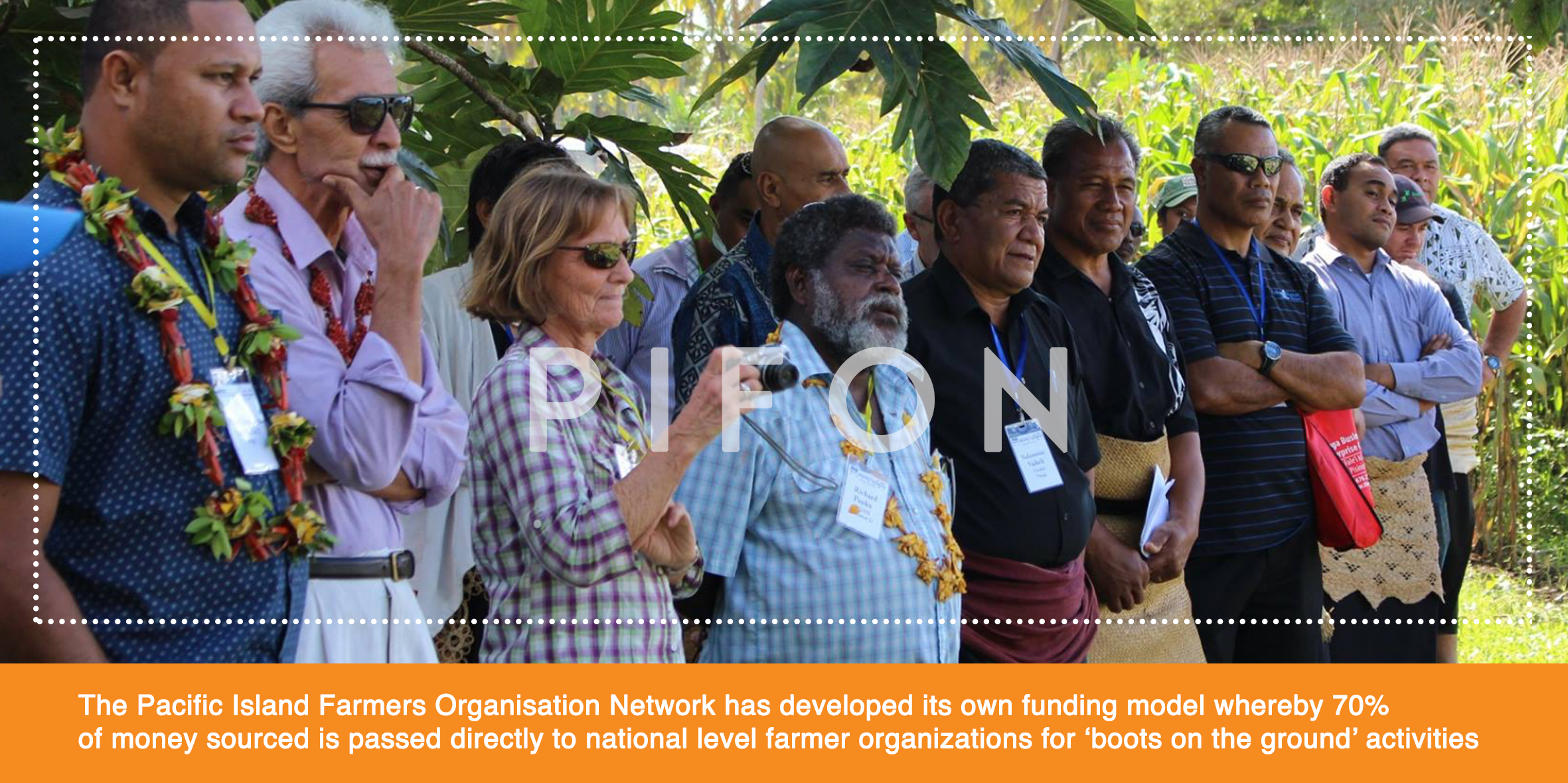October 2021
Capacity Building Reflections of Pacific Farmer Organisations

A landmark agreement between the International Fund for Agricultural Development (IFAD) and the Pacific Island Farmers Organisation Network (PIFON) is enabling greater opportunities for Pacific farmer organisations to be part of the early stages of programme development, and to help shape projects that better meet the needs and realities of Pacific farmers.
The historic agreement, signed in November 2016, led to the formation of the Declaration of Commitment with IFAD and has greatly altered the way farmer organisations operate in the Pacific Islands.
In a speech before signing, former IFAD Pacific Country Director, Ronald Hartman called on farmer organisations to use the agreement to make food and nutrition security an everyday reality for all Pacific islanders.
“This is the first official declaration of this type between IFAD and farmer organisations anywhere in the world that will allow for greater impacts of our programs down to the small-holder farmers of the Pacific”.
PIFON’s Managing Director, Kyle Stice says the Network’s secretariat has come a long way from one volunteer manager using a borrowed desk at Nature’s Way Cooperative to a team of six highly dedicated staff operating from its very own rented building and providing a range of services to its members.
“It has been so exciting to grow together with our member organisations, we have learned so much from our members about the fundamentals of a good farmer organisation and we strive to apply these learning to our regional network”.
Over the past five years the Pacific Island Farmers Organisation Network has risen and kept on rising. This is a reflection not only of the hard work by the network’s member organisations but also of changes at the organisation’s secretariat. A quick look at some of these key changes explains much about how they have been able to deliver these impressive impacts from the five years of the MTCP2 programme.
The membership of the Network has expanded from 13 farmer organisations in 2013, to 21 farmer organisations in 2018. These farmer organisations are found in nine Pacific countries (up from six) and represent around 80,000 farmers, a four-fold increase from around 19,000 farmers in 2013.
The hiring of a Program Manager and a Finance Manager increased the number of staff working in the secretariat from two to four. These staff additions have enabled the secretariat to provide more support to its members, maintain better relationships with donors and other partners and improve its operational and financial systems.
Aneet Kumar, Finance Manager at the Pacific Island Farmers Organisation Network made these observations on the changes to their financial systems:
“Before we were using Excel sheets for data entry and reporting, but now we have MYOB installed it is easier to retrieve reports. For each project the monitoring is being done and it is easier to track each budget line to avoid over spending.”
“Our financial policies have also been updated, to reflect our new role, transferring funds directly to our members. The internal controls have been strengthened within the organisation to comply with audit and donor requirements. As a result we have started to handle more and more funding each year, as donors realise our capabilities. These changes have allowed us, as an organisation, to confidently bid for more projects, both short and long term.”
As a result of these changes the Network has been able to secure new international and regional partnerships, source new funding and develop improved income streams. Annual income for the secretariat has risen by 260%, from FJD380,000 in 2013, to just over FJD1million in 2018. Part of this income growth comes from the development of new income generating services, such as events management, which supports the sustainability of the secretariat between project cycles.
The Pacific Island Farmers Organisation Network, through its experiences over the past five years, has developed its own funding model whereby 70% of money sourced is passed directly to national level farmer organizations for ‘boots on the ground’ activities. There has also been development of its own brand of signature activities, with a proven track record of success. These include the farmer-to-farmer learning exchanges; participatory value chain analyses and training; and annual learning and planning meetings.
And while this is an impressive list, it only captures some of the real changes that have occurred across the Network and at the secretariat. These changes are reflected in the upcoming stories and speak of an organisation taking control of its own future. A network of farming organisations that is placing itself at the centre of agricultural innovation in the region and focussing on delivering outcomes to its members – the Pacific farmers and their families.
